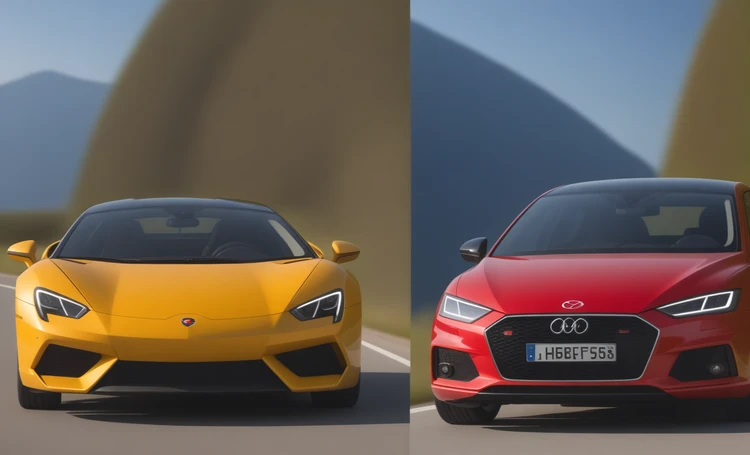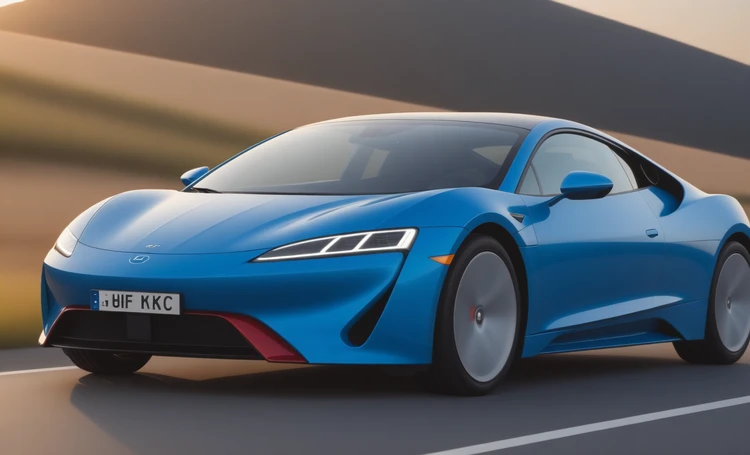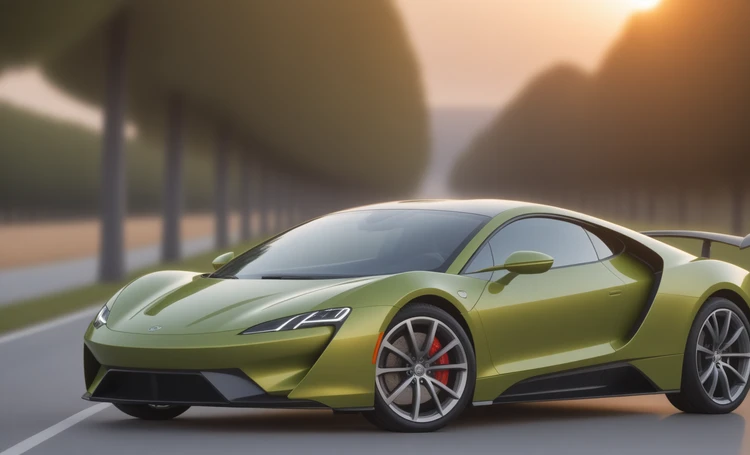🌿 Environmentally Friendly Cars: Saving on Fuel Purchases
The era of environmentally friendly cars has arrived, and this is not only a matter of preserving the environment, but also significant savings on fuel purchases. Environmentally friendly vehicles, such as electric vehicles and hybrids, provide significant savings in fuel costs compared to traditional gasoline or diesel vehicles . Find out the benefits of buying green car fuel here.
📊 Savings: Real Numbers
Let's consider the economic aspects of operating environmentally friendly cars. Research shows that electric vehicle owners can save up to $1,000 a year on fuel compared to traditional gasoline vehicles. Hybrid vehicles also offer significant savings due to their ability to run on electric power in urban environments.
🛠 Technical Advantages
Eco-friendly cars have benefits that go beyond just fuel economy. They have fewer moving parts, which reduces maintenance costs. Electric motors are less subject to wear and tear compared to traditional internal combustion engines.
💰 Cost of Ownership
Although the initial cost of green cars may be higher, the total cost of ownership over several years is often lower due to savings on fuel and maintenance. Plus, many countries offer tax breaks and subsidies for buyers of these cars.

🌍 Contribution to Environmental Protection
Switching to environmentally friendly cars is not only beneficial for your wallet, but also helps reduce environmental pollution. Electric vehicles and hybrids reduce emissions of carbon dioxide and other pollutants, which has a positive effect on air quality, especially in urban environments.
🏙 Impact on the Urban Environment
Green cars also help improve the quality of life in cities. Reduced noise levels and the absence of exhaust fumes make urban areas more pleasant to live and work in.
📈 Growing Demand and Popularity
Given the growing interest in ecology and sustainable development, the demand for environmentally friendly cars continues to grow. Automotive manufacturers around the world are actively expanding their lines of electric vehicles and hybrids, offering more and more options to consumers.
🌱 Innovation and Technological Progress
Innovation in the field of environmentally friendly cars is in full swing. Advances in battery technology, improved energy management systems and the integration of advanced technologies such as artificial intelligence and machine learning are helping to improve the efficiency and usability of these vehicles.
💡 Technological Advances
Modern electric vehicles are equipped with highly efficient batteries that provide greater range and shorter charging times. Additionally, many models now include regenerative braking, which allows energy to be returned back to the battery, increasing overall driving range.
📱 Applications and Communication
Most eco-friendly cars are integrated with smartphones and other devices, allowing the driver to control charging, routes and other aspects of the car using mobile applications. This makes the use of electric vehicles even more convenient and efficient.

🚗 Types of Eco-Friendly Cars
The green car market includes several different types of vehicles, each with its own unique characteristics and benefits.
🌟 Electric cars
Electric cars run entirely on electricity, making them the most environmentally friendly choice. They are ideal for mountain driving and short trips. As the network of charging stations grows, their popularity continues to increase.
🔄 Hybrid Cars
Hybrid cars combine an internal combustion engine and an electric motor, allowing them to use fuel more efficiently and reduce emissions. They are an excellent choice for those looking for a balance between traditional and all-electric transportation.
🌐 Plugin- Hybrids
Plug-in hybrids offer even more flexibility by allowing drivers to charge from a conventional electrical outlet, increasing all-electric range. They are ideal for those on both short and long trips.

💸 Savings on Fuel and Maintenance
Environmentally friendly cars promise significant savings on both fuel and maintenance. Electric vehicles in particular have fewer moving parts than traditional cars, reducing the likelihood of breakdowns and reducing maintenance costs.
🛠 Less Maintenance
The absence of traditional internal combustion engines in electric vehicles eliminates the need for regular oil changes, spark plugs, fuel filters and many other components. This significantly reduces overall maintenance costs.
🔄 Regenerative Braking
Regenerative braking technology, used in many environmentally friendly cars, not only increases driving range, but also reduces wear on the brake system, which further saves the owner money.
⚡ Saving on Fuel
Using electric vehicles allows drivers to avoid regular expenses for gasoline or diesel fuel. With the expansion of the charging network and the falling cost of electricity, electric vehicles are becoming an increasingly attractive option in terms of savings.

🌍 Impact on Ecology
Green cars have a significantly lower impact on the environment. They not only reduce greenhouse gas emissions, but also reduce air pollution, which is especially important in urban environments.
🍃 Reduced Emissions
Electric and hybrid vehicles significantly reduce emissions of carbon dioxide and other harmful substances. This makes them an ideal choice for those seeking a more sustainable and environmentally friendly lifestyle.
🔇Reduce Noise Pollution
Eco-friendly cars also help reduce noise pollution, especially in densely populated urban areas. Thanks to the quiet operation of electric motors, the noise level on the streets is significantly reduced.
🏙 Positive Impact on the Urban Environment
Promoting green cars helps create cleaner and healthier urban environments. This is especially true for large cities where air pollution is a serious problem.

🌿 Green Infrastructure
The development of infrastructure to support environmentally friendly cars plays a key role in promoting these technologies. Electric vehicle charging stations, subsidies and tax incentives are being rolled out in many countries, including the US and Europe, to encourage a shift to greener modes of transport.
🚗 Development of Charging Infrastructure
Building an extensive network of charging stations makes the use of electric vehicles more convenient and affordable. Not only does this make it easier to travel long distances, but it also increases the overall acceptance of electric vehicles in society.
💰 Financial Incentives
Many governments offer subsidies and tax breaks for the purchase of environmentally friendly cars. These measures make them more accessible to a wider audience, accelerating the transition to environmentally friendly technologies.
🌐 Global Trend
All over the world there is a trend towards increasing sales of environmentally friendly cars. With improving technology and growing awareness of the environmental impact, more people are choosing electric vehicles as their primary means of transportation.

🚀 Technological Progress
Technological innovation plays an important role in the development of environmentally friendly cars. Improving batteries, increasing the efficiency of electric motors and introducing new materials are making electric vehicles more efficient, affordable and attractive to consumers.
🔋Battery Improvement
Constant research in battery technology leads to increased battery capacity and reduced charging time. This not only increases driving range on a single charge, but also makes electric vehicles more practical for daily use.
🏗 New Materials and Design
The use of lightweight and sustainable materials in vehicle construction reduces energy consumption and improves aerodynamic performance. Innovative design and functionality also make these cars more attractive to buyers.
🌍 Global Impact
Progress in the field of environmentally friendly cars contributes to improving the environmental situation at the global level. Reducing emissions of CO2 and other pollutants leads to improved air quality and reduced climate impact.

🏁 Conclusions and Recommendations
Environmentally friendly cars represent a key trend in the modern automotive industry. Fuel savings, lower operating costs, improved environmental performance and technological innovation make them an attractive choice for today's consumers. Given current global trends and progress in infrastructure development, the choice of environmentally friendly vehicles is becoming increasingly clear.
